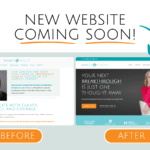“If companies want to increase productivity, they must deliberately manage their employees toward engagement and help them use their strengths with knowledgeable intent.” —Gallup Business Journal
Why do top athletes have coaches?
It’s not because they’re bad at what they do. It’s the opposite: They’re committed to performing at their best.
They don’t hit a certain level of performance then say, “I know everything; I don’t need a coach anymore.”
No…because they know that no matter how skilled they are or how hard they work, a good coach will still be able to help them develop faster and further.
Now pause.
What would happen if we applied this mentality to the corporate setting?
What if we normalized coaching, not just for leaders who are struggling, but for leaders who are serious about elevating their impact?
How much would collective performance change if coaching was seen as a proactive investment, not a reactive correction?
The Stigma Surrounding Coaching
Recently I was chatting with one of my clients about workshops they were interested in having me facilitate. I suggested adding an hour of group coaching, so that participants could apply what they learned to their own workplace situations.
I was surprised to receive pushback on the suggestion.
When I asked why, I learned that the organization has a widespread resistance to the idea of coaching. The underlying belief is that if someone has a coach, it’s because they are not doing a good job.
They see coaching as a means of ‘fixing’ bad performance.
But is that really true?
Even the best leaders who get great bottom line results have blind spots.
It’s only when we start asking and plugging into how others experience us that these blind spots can come to light. Coaching can help us recognize the thoughts we are choosing and believing, so we become aware of our blind spots and learn from them.
It’s not about ‘fixing’ anybody.
It’s about unlocking awareness, expanding perspective, and equipping people to access their own best thinking so they can move forward with clarity and confidence.
Normalizing Continuous Improvement
If employees feel they cannot access coaching or other forms of professional development without management thinking they are doing a ‘bad job,’ company growth stalls.
On the other hand, when organizations integrate coaching into their development culture, it creates room for continuous improvement.
Coaching empowers people to self-reflect, communicate more effectively, and navigate challenges independently. In fact, when employees know their strengths and how to use them, they become nearly 6x more engaged, leading to higher performance and longer retention.
So, let’s all learn a lesson from sports…Coaching isn’t a sign of weakness—it’s a hallmark of high-performing cultures.
Every Thought is a Possibility
–Nancy
P.S. If your organization views coaching in a negative light, I’d love to hear your perspective. Please book a discovery call so we can talk about it.
P.P.S. My new website is live — Check it out!


